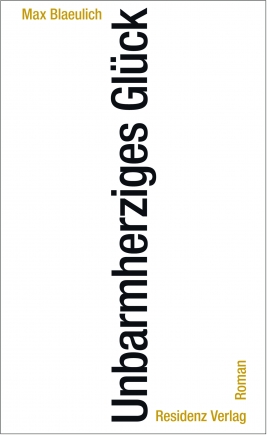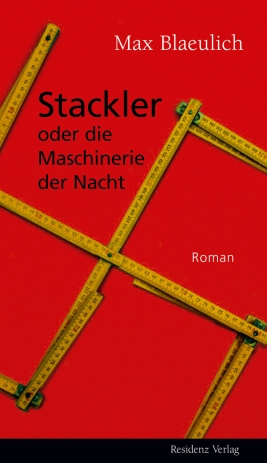Max Blaeulichs Prosa ist schonungslos in ihrem Blick auf die Dinge; sie lebt zugleich von einem expressiven Sprachwitz, überbordender Sinnlichkeit und dem souveränen Wechselspiel zwischen Tragischem und Groteskem.
[Quelle: Prof. Dr. Norbert Otto Eke, Laudatio Thomas-Valentin-Literaturpreis ]
Gnadenlos skeptischer Blick […] Max Blaeulich seziert wieder Zeitgeschichte. Sein jüngster Roman […] erzählt bitter und heiter von Einsamkeiten.
[Quelle: Anton Thuswaldner, SALZBURGER NACHRICHTEN]
Ein sprachgewaltiger Roman über die Einsamkeit mit wunderbar skurrilen Figuren, Szenen und Bildern.
[Quelle: Patricia Brooks, BUCHKULTUR]
Max Blaeulich ist ein Meister der Groteske, ein Lachlehrer, der in die Lehre des ernsten Lachens einführt. Die Beschreibung der Hundertjahrfeier des Asyls ist ein Meisterstück (…) Wer tatsächlich die Abgründe der Conditio humana ausleuchten möchte, der kann das heutzutage am besten mit diesem schonungslosen Bericht versuchen.
[Quelle: Helmut Sturm, LITERATUR UND KRITIK]
…ein literarisches Gemälde des Alterns.
[Quelle: Ruth Renee Reif, DER STANDARD]
Das im Residenz Verlag erschienene Werk funkelt in allen Schattierungen der Verzweiflung, der 1952 in Salzburg geborene Autor erinnert in gnadenloser Sprachmacht an Kafka.
[Quelle: KRONENZEITUNG]
Das ist grotesk, furchtbar traurig, herrlich komisch … und Max Blaeulich, der großartige Meister einer tollen, neuen Gattung: der fantastischen Melancholie.
[Quelle: Hermann Barth, IN MÜNCHEN]
… der Hang zum undisziplinierten Überschwang, zur freigebigen Vergeudung von Anekdoten und Formulierungen gehört zu diesem Autor, dessen Metier der Sprachrausch ist und Vorliebe der grotesken Überzeichnung gilt.
[Quelle: Karl-Markus Gauss, SÜDDEUTSCHE ZEITUNG]
Sprachlich meisterhaft und bis zur Groteske gesteigert (…)
[Quelle: SAX]
Zum Glück kontrastiert der Autor diese Wucht der realen Schicksale mit Passagen voller feiner Ironie. (…) Aus jeder Zeile spricht gehöriger Respekt, wenn nicht gar Demut gegenüber Menschen wie Frau Berta.
[Quelle: Katrin Hillgruber, DIWAN, BAYERN 2]
….eine vielzimmrige Anlage, reich an Schicksalsgeschichten und reich an Wortenergie, die das Chaos zu bannen sucht.
[Quelle: Björn Hayer, NEUE ZÜRCHER ZEITUNG]








